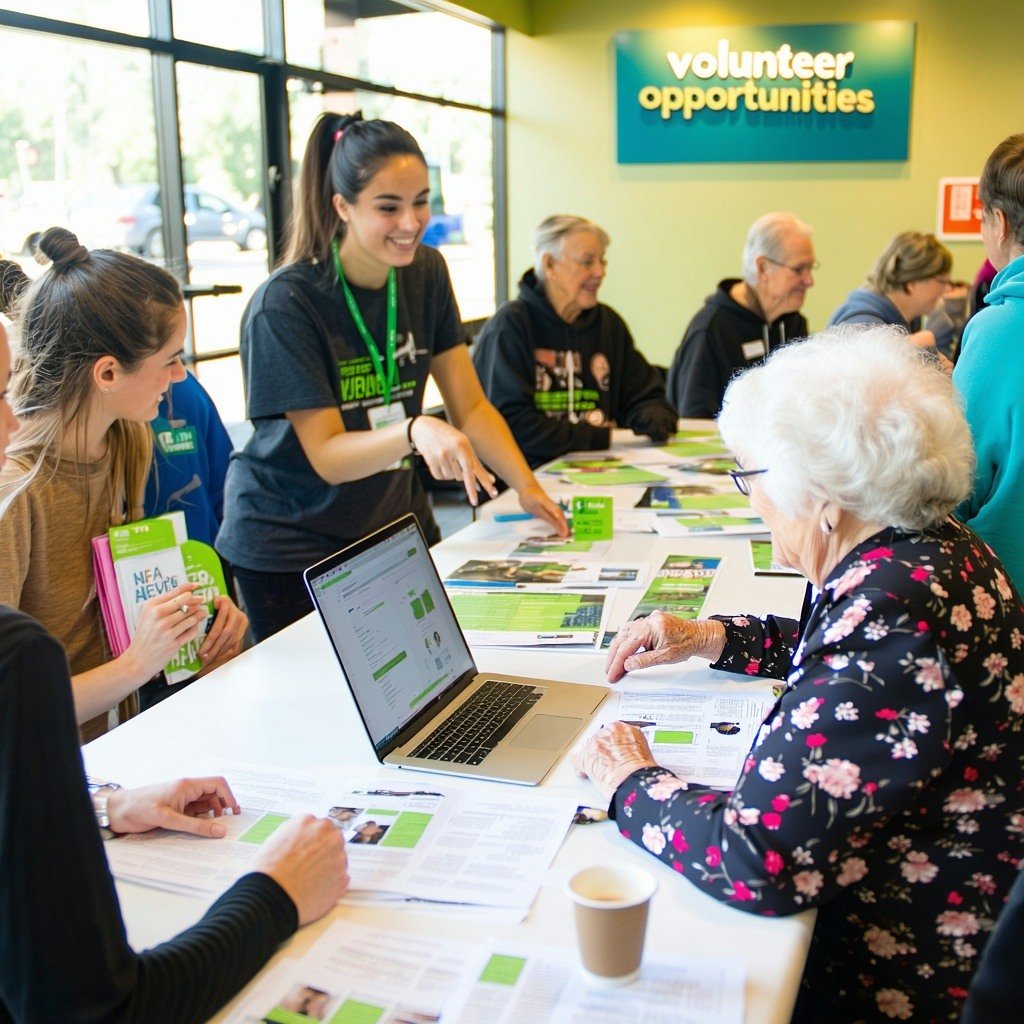Enhancing Volunteer Recruitment Efficiency with Volunteer Impact
Recruiting volunteers is a challenging yet essential task for any volunteer-involving organization. As a volunteer manager, you understand the...
4 min read
 Andy Fryar, Better Impact (Australia Office)
Mar 8, 2021 3:16:54 PM
Andy Fryar, Better Impact (Australia Office)
Mar 8, 2021 3:16:54 PM

Over the years I’ve literally interviewed thousands of people and if I might say so myself, I am damned good at it!
However, recently I have been thinking a lot more about interviews from a completely different angle.
This different line of thought has been spurred on by a number of independent discussions I have had with volunteer managers in my travels, who have taken on new VM positions, only to find that the job that was advertised – that was promised, was not the job that was delivered!
Of course, by the time many learn this cold hard fact, it’s far too late to turn back. They have already given their notice and embarked on a whole new journey – and sadly for many, the new job that promised so much, is often actually a role made up of lacking resources, little support, cultural clashes and working in isolation.
The typical scenario that ensues over the months that follow gaining a new (but unsatisfactory) position often reads something like this:
I think that for far too many of us, the opportunity to work in a new agency, for a new cause and with new people often sweeps away our usual commonsense. It takes us to a point where somehow we morph into simple starry-eyed applicants, champing at the bit just to get started, not asking clarifying questions and, all too often, resulting in us letting our guard down.
The most important part of any interview, for me at least, is that point in the process where our potential new employer asks that critical question
“So do you have any questions of us?”
Here’s where we need to force ourselves to think beyond simply clarifying what our new pay packet will look like and blurting our details about pre-planned holidays we have booked!
For it’s at this point that WE get to do some of the interviewing – and remember, we are good at this!
So to this end, I have prepared ten questions that I believe we should ALL be asking of our potential employers during the interview process, to ensure the environment we are walking into is worthy of the skills that we bring to the table.

This is a pretty broad question – but what you are looking for here is a response that gives you some assurance that the agency you are about to throw yourself into has a well thought through position on how volunteers add to the delivery of services and the value of the organisation. You want to know that volunteers are not some sort of ‘add on’ – but a properly planned human resource within the organisation.
Taking it one step further – and if the previous answer does not draw this out, you’ll want them to be clear about how the involvement of vols helps to achieve the organisation’s mission. If they can’t clearly demonstrate that, then perhaps volunteers are more of added ‘extra’ rather than a core part of the agency and its drive.
This is an important one. If they talk only about growing volunteer number and hours for the simple sake of growing number and hours – run!!! Their response should ideally demonstrate that the engagement of volunteers is measured alongside the orgs mission! That these two factors are inseparable.
You would hope this response is able to be clearly articulated – especially as they are heading through an interview process. However, that may not be the case! Be sure they are not simply working through a ‘replacement’ process but rather that they have clear ideas about the future of the program.
Possibly, the most critical of all these questions. This is also a direct flow on from the previous response they would have given to you. If they are serious about program growth and development they will not only know where they want to head but what resources they have to throw at achieving it! If you are going to accept an offer from this group – then be as sure as you can be that adequate resources (financial, physical and emotional) are available to you.
It’s one thing to involve volunteers – another to seek their input. Ask them to articulate!
It’s critical to understand that your direct line manager is on the same page as you. If they are not at the interview be alarmed! And if they are, don’t be afraid to eye ball them and ask. This person will be your first line of both defense and support. It’s such a critical relationship you need to make sure it is a good one.
We are moving away from the role of volunteers now and focusing on the VM role more specifically. Listen out for clues that give you an assurance that the VM is seen as a lynch pin in an organisational context. Is the VM role a part of the decision making team? Is the role valued and critical to the agency?. Do they consider your role to be that of a VM ‘specialist’ and do they expect you’ll jump up and down and challenge stupid decisions they might be considering? Do they see your role as the one that just does the ‘busy work’ of volunteer recruitment or do they consider it to be more strategic?
Make sure you can subscribe to journals, attend conferences and participate in network meetings. Ensure that the agency understand that this is a critical part of the role and that professional development is central to growth.
By now they’ll either be sick of you or caught up in your zeal for the role! So why not hit them with one more whammy!!! If they can ask you for a referee, there’s no rule to say you can’t ask for one back! Ask for the name of some employees or department heads – or even volunteers to see if the rhetoric they are spinning you matches reality! If nothing else – you’ll gain their attention and they’ll know you are serious about the role.
As Volunteer Managers I don’t need to remind you that an interview process should always be a two way process (…do I!) and by asking a series of the right questions there is a much higher possibility that volunteer managers are going to find a suitable match for the skills that they bring to the table.
Try it – I’d love to hear the outcome.
I’d love to hear your feedback too!
Featured Posts

Recruiting volunteers is a challenging yet essential task for any volunteer-involving organization. As a volunteer manager, you understand the...

In a world where technology is intertwined into almost every aspect of our lives, volunteering is no exception. Technology has drastically changed...

The idea of micro-volunteering is gaining traction, and for good reason. Fewer people are willing or able to commit to a regular shift. They want the...